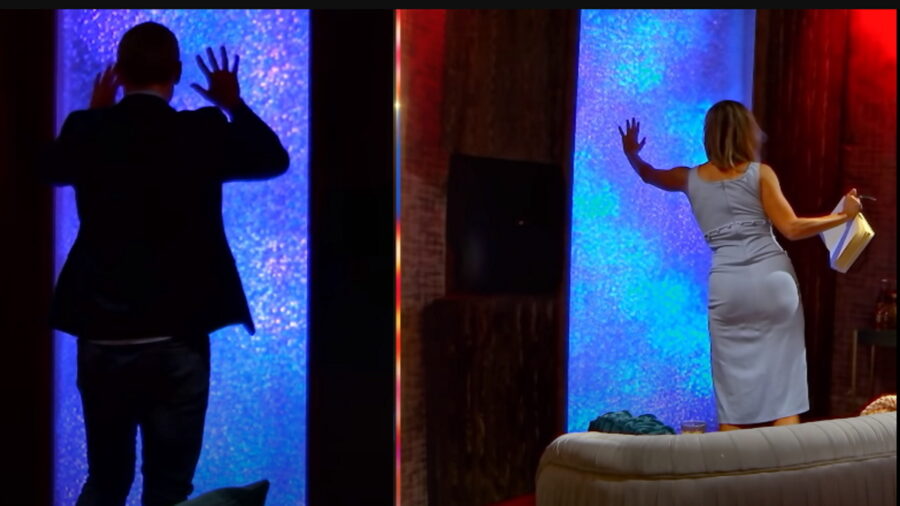Love Is Blind Lawsuit Alleges Abuse, Drug Use, And Imprisonment

Love is Blind has been a major trash TV hit for Netflix, but it seems like everything may not be so great behind the scenes of the reality series. Contestant Renee Poche is filing a major lawsuit against Netflix and production company Delirium TV, claiming intentional infliction of emotional distress along with violations of California labor and civic codes. The lawsuit will also see Poche seeking to nullify her contract.
Poche alleges that the Love is Blind production forced her to spend time alone with Wall, who she says was abusive both on and off camera.
Renee Poche was approached by a Love is Blind casting agent on November 21 and would eventually begin filming in April 2022 after an arduous interview process. Poche claims that her phone, passport, and driver’s license were all taken on the first night of production and that she was locked in her hotel room, only being allowed to leave if accompanied by a cast wrangler.
Poche would eventually begin an on-show romance with contestant Carter Wall, who made it past the strict vetting process despite allegedly not having a job and a house while also being addicted to amphetamines and alcohol.
“My experience on Love is Blind was traumatic. I felt like a prisoner and had no support when I let Delirium know that I didn’t feel safe. I felt it was only right to let others know the truth of what all of the castmates had to endure.”
Renee Poche
Poche alleges that the Love is Blind production forced her to spend time alone with Wall, who she says was abusive both on and off camera during her time on the series. After Poche made some public comments about her bad experiences with the series, Delirium TV engaged in private arbitration, accusing Poche of violating her nondisclosure agreement.
The company is reportedly seeking $4 million from Poche, who only made $8,000 from her appearances on the show.

Poche spoke to Variety about the lawsuit she is bringing to LA courts, saying, “My experience on Love is Blind was traumatic,” and, “I felt like a prisoner and had no support when I let Delirium know that I didn’t feel safe. Poche added, “I felt it was only right to let others know the truth of what all of the castmates had to endure.” Poche’s case is being taken on by Hollywood lawyers Bryan Freedman and Mark Geragos
Freedman and Geragos are adding Poche’s Love is Blind lawsuit to their ongoing legal battle with the reality-scripted TV industry at large. The two lawyers were brought on by Bethenny Frankel back in July to fight for workplace protections, leading to the paid sending a litigation hold notice to NBCUniversal in August accusing the company of “a pattern and practice of grotesque and depraved mistreatment of the reality stars and crewmembers on whose account its coffers swell.”
Since then, Freedman and Geragos have taken on several hundred reality stars and crewmembers who are claiming numerous allegations, including false imprisonment and sexual violence.
Geragos and Freedman also expect even more reality cast and crewmembers to come forward, explaining that the contracts that they are subject to are “not just illusory but also illegal.” Poche’s case is especially unique because she is the first reality star to challenge the legality of her contract’s conditions and nullify the contract completely.
Tran Dang, who participated in Love is Blind Season 5, is also suing Delirium for sexual assault, false imprisonment, and negligence but is not attempting to break her contract in the case.
Poche claims that her phone, passport, and driver’s license were all taken on the first night of production and that she was locked in her hotel room.
If Poche finds success in her Love is Blind lawsuit, it could lead to a reckoning for the reality industry, and contracts and provisions will need to be changed from what has likely been allowed to exist for years. Notably, Freedman and Geragos are also specifically targeting Netflix and not just the production company, as studios tend to shift the blame to the production company in these cases.
It appears that Freedman and Geragos are looking to hold all of these companies accountable in their crusade to take on the reality industry.
Source: Variety











